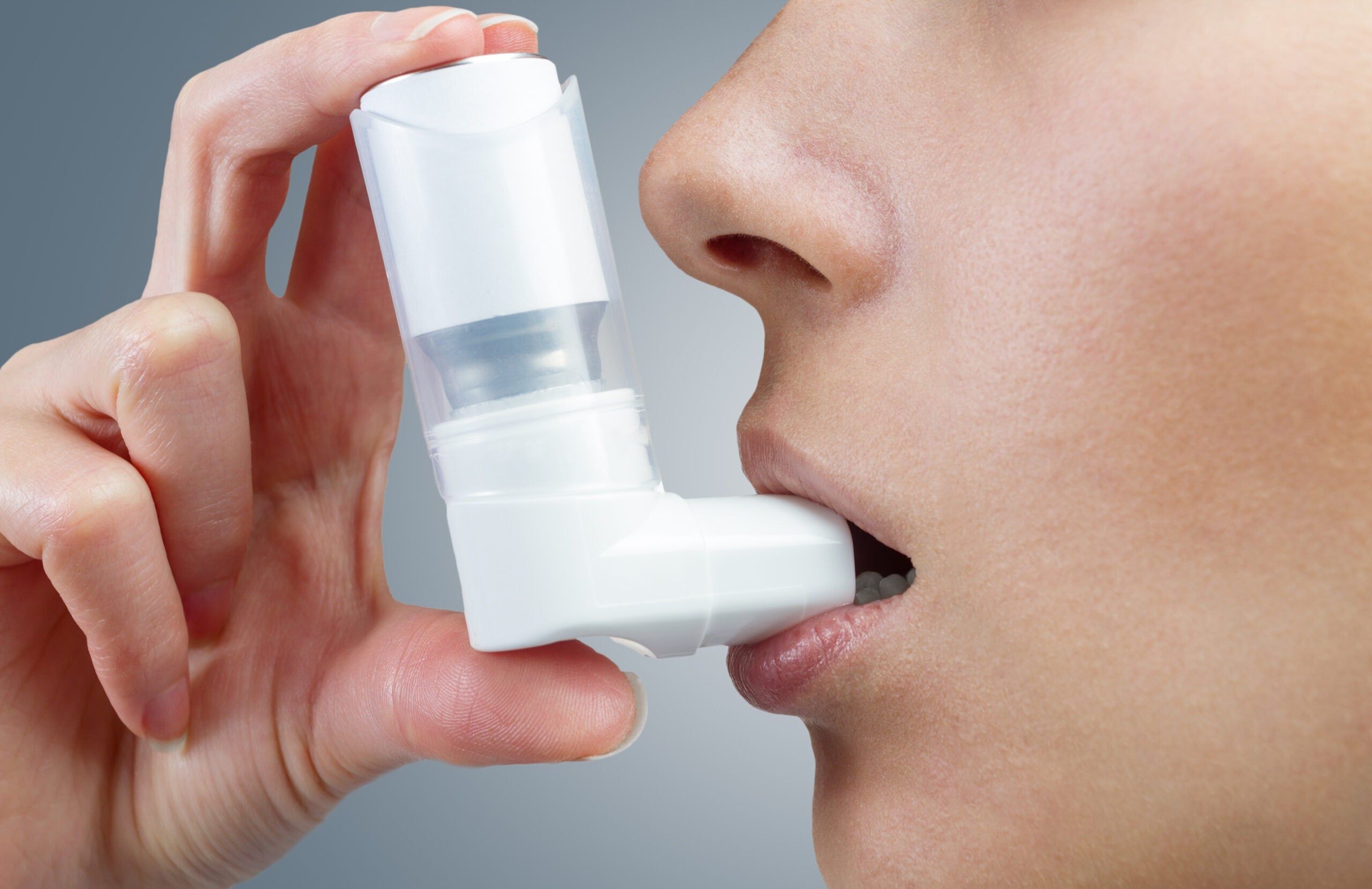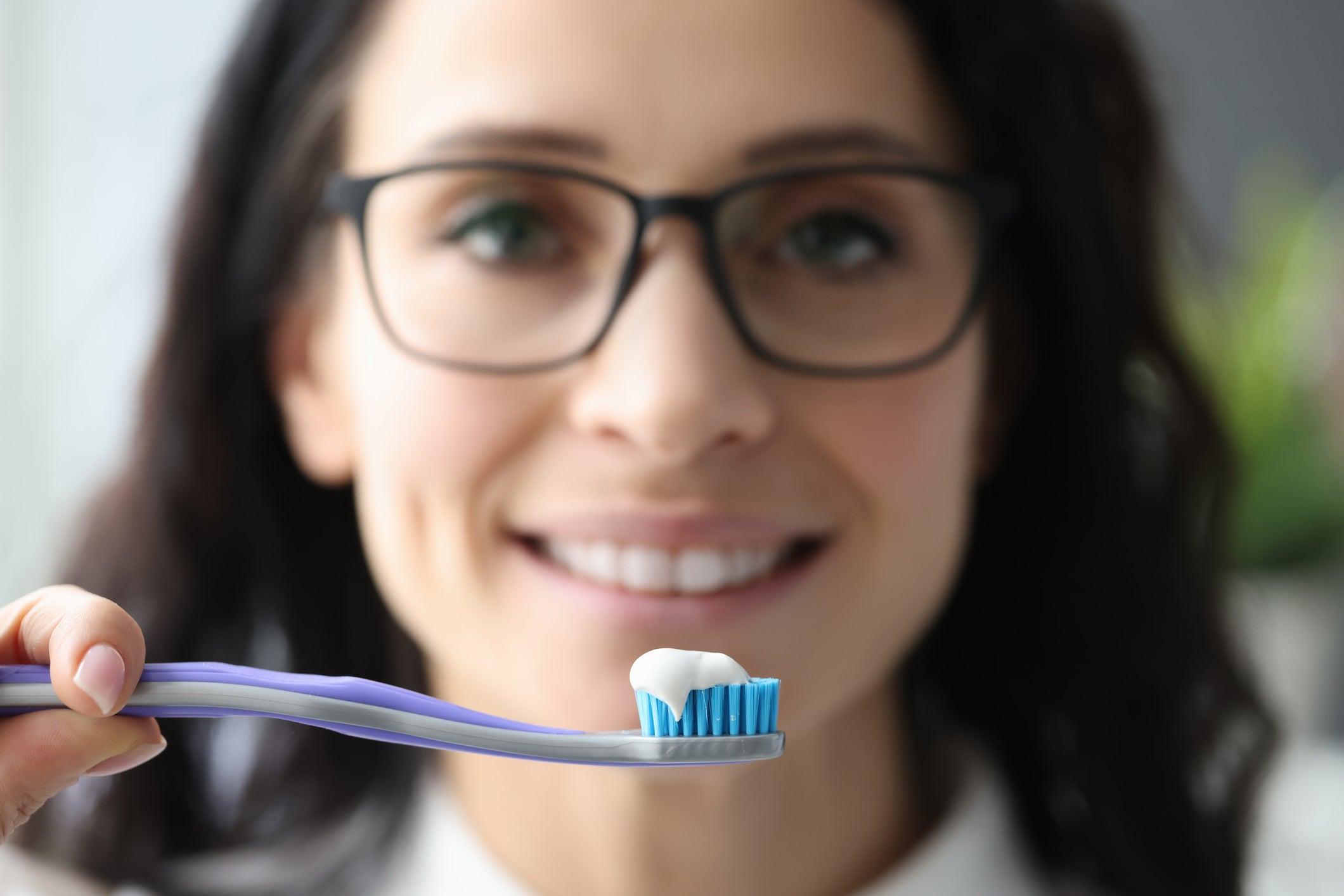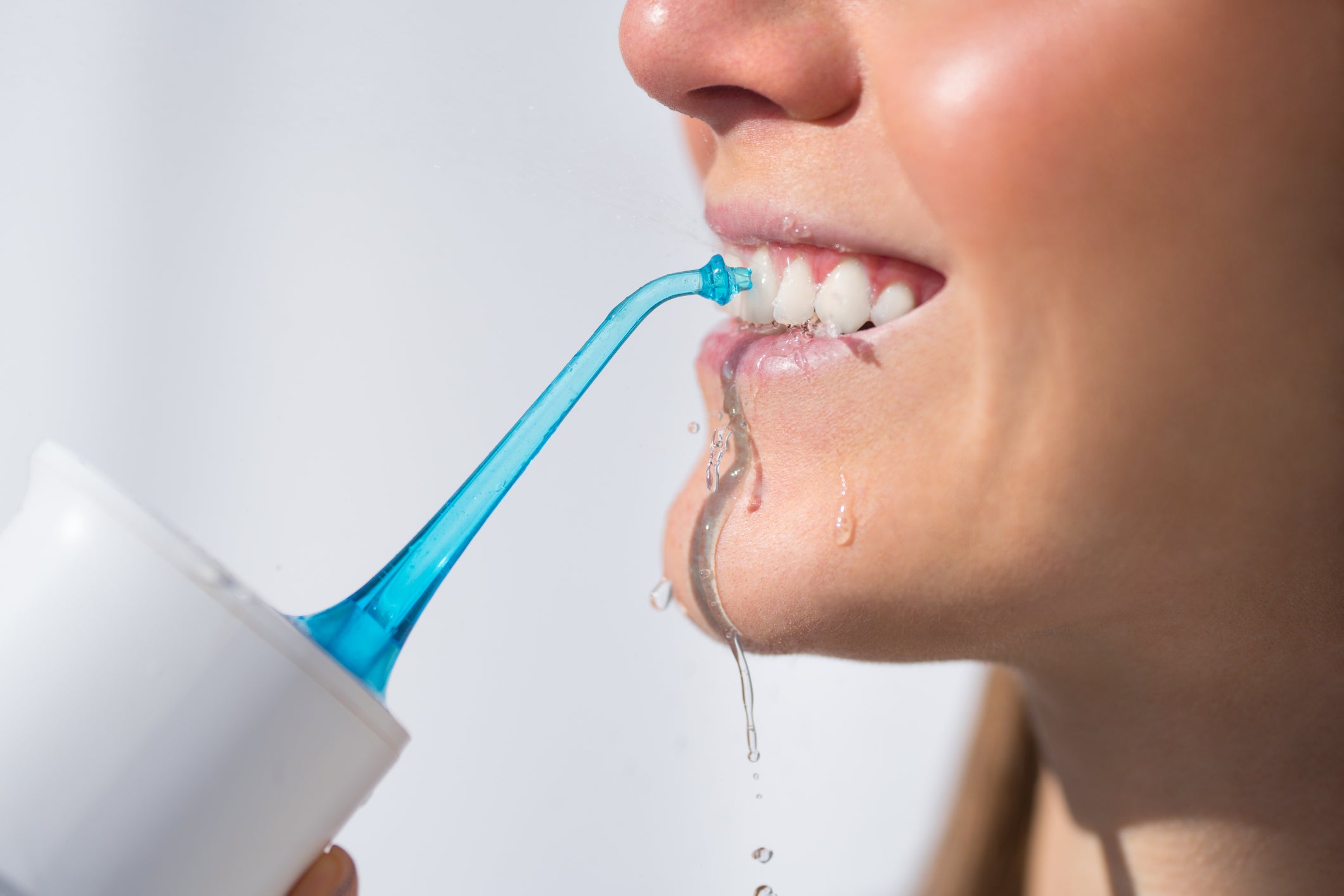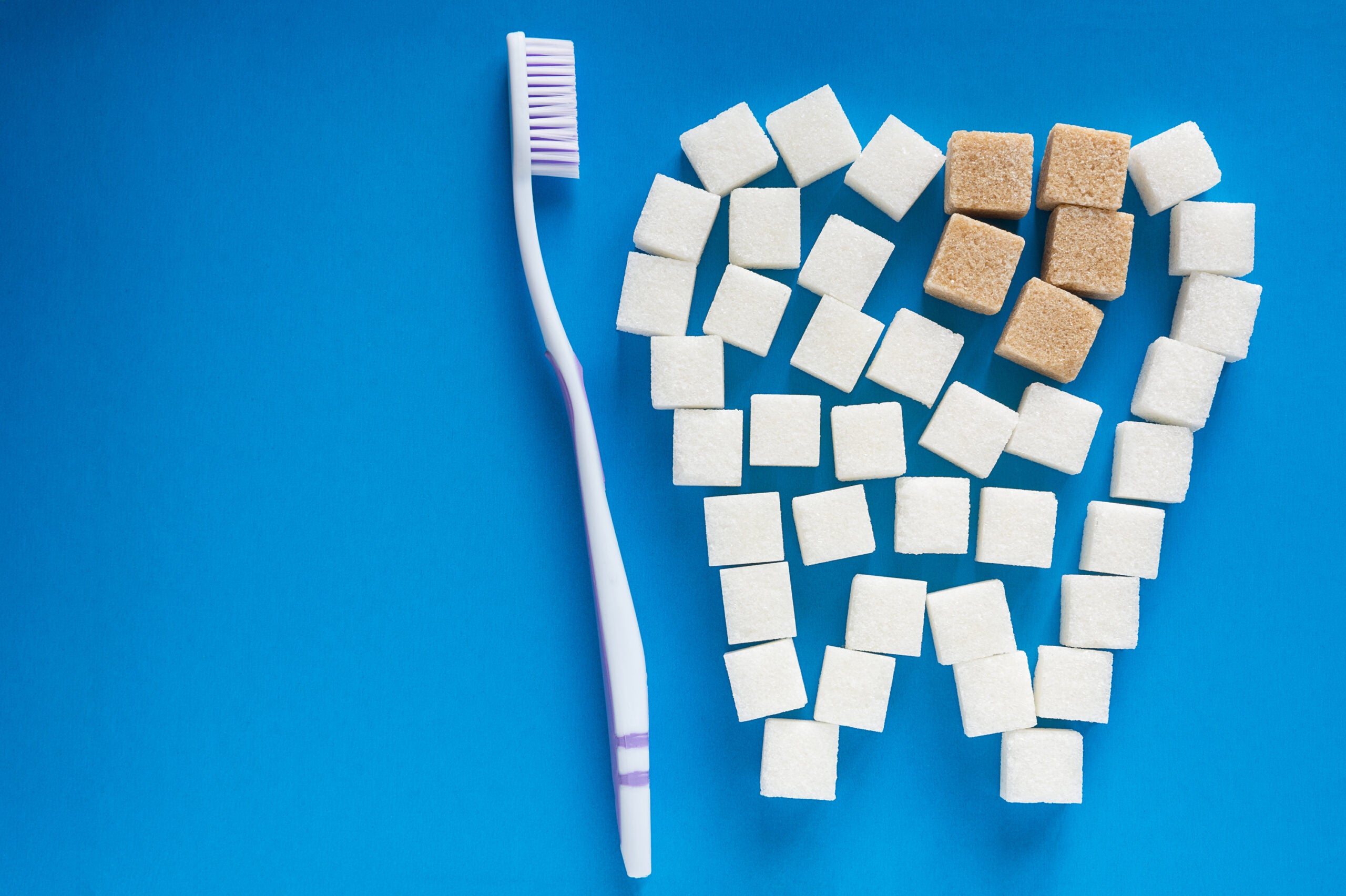
Asthma is a chronic respiratory condition that affects millions of people around the world. It is a condition that causes inflammation and narrowing of the airways, leading to difficulty breathing. It is well known that asthma triggers can come from a variety of sources, such as pollen, pollution, and other environmental factors. However, did you know that oral health can also play a significant role in asthma management? In this blog post, we will explore the connection between asthma and oral health.
Asthma and Gum Disease
Studies show that people with asthma are more likely to develop gum disease than those without asthma. Gum disease is an infection that affects the tissues and bones that support the teeth, and it can lead to tooth loss if left untreated. This is because the inflammation in the airways caused by asthma can also affect the gums. Furthermore, some of the medications used to treat asthma can have side effects that increase the risk of gum disease.
Asthma and Dry Mouth
Breathing through the mouth is a common symptom of asthma, especially during an attack. However, this can lead to dry mouth, which is a condition that reduces the amount of saliva in the mouth. Saliva is essential for a healthy mouth because it helps to wash away food particles and neutralize the acids that cause tooth decay. When there is not enough saliva, the risk of tooth decay, gum disease, and other oral health issues increases.
Asthma and Oral Thrush
Oral thrush is a fungal infection that can affect the mouth and throat. People with asthma are at a higher risk of developing oral thrush because the medications used to treat asthma can weaken the immune system. Furthermore, the inhalers used to deliver medication can leave residue in the mouth, providing a breeding ground for yeast and bacteria.
Asthma and Teeth Grinding
Teeth grinding, or bruxism, is a condition that causes the grinding, clenching, or gnashing of teeth. People with asthma may be more likely to grind their teeth because asthma attacks can cause tension and stress, which can translate into clenching and grinding during sleep. Teeth grinding can lead to a host of oral health issues, such as tooth sensitivity, cracked teeth, and jaw pain.
Asthma and Oral Care
Proper oral care is essential for people with asthma because it can help to prevent oral health issues and reduce the risk of respiratory infections. This includes brushing twice a day with fluoride toothpaste, flossing daily, and using an antimicrobial mouthwash. Additionally, people with asthma should rinse their mouth with water after using their inhaler to reduce the risk of dry mouth and oral thrush.
Contact Park 56 Dental in New York Today for More Tips!
Asthma and oral health are closely linked. People with asthma are at a higher risk of developing gum disease, dry mouth, oral thrush, and teeth grinding. However, by practicing proper oral hygiene and working closely with your dentist, you can reduce the risk of these issues and improve your overall health. At Park 56 Dental, we are dedicated to helping our patients maintain healthy mouths and bodies. If you have asthma or any other respiratory condition, please let us know so that we can provide you with the best possible care.

Tooth pain can be one of the most debilitating types of pain that a person can experience. It makes it hard to eat, sleep, and function normally. In some cases, tooth extraction may seem like the easiest route, but is it always the best option? At Park 56 Dental, we believe in preserving teeth whenever possible. In this blog post, we will explore the benefits and drawbacks of tooth extraction versus tooth preservation methods to help you make an informed decision about your oral health.
The Downsides of Tooth Extraction
While tooth extraction may seem like an easy route to take, it has a host of downsides. One of these is cost of dental implants or dentures, both of which are common interventions following tooth extraction. Another downside is that tooth extraction can lead to bone loss and cause facial shape changes over time. Additionally, tooth extraction can be an uncomfortable procedure, and patients are often left with gaps in their smile which can affect their self-esteem.
The Benefits of Tooth Preservation
Tooth preservation, on the other hand, has a host of benefits. One advantage of preserving teeth is that it allows for an essentially normal bite and means that the patient can eat a larger variety of foods. This, in turn, can improve quality of life and overall health. Another advantage of tooth preservation is that it keeps the underlying bone healthy, allowing the facial structure to maintain its shape over time.
Options for Tooth Preservation
If extraction is not the right route for your dental needs, you might be thinking, what are my options? There are a handful of options for preserving a tooth. One of the most common methods is root canal treatment, which involves removing the decayed tissue from the inside of the tooth, filling it with a material that replaces the decay, and then sealing it up. Another option for tooth preservation is crowns, which are cap-like structures that go over teeth that have lost a large amount of their original structure due to decay or injury. Dental veneers are a similar therapy, but they are restricted to teeth that have only spent small amounts of enamel.
Determining Whether to Extract or Preserve
It can be challenging to determine whether to extract a tooth or to preserve it. Ultimately, this decision must be made in consultation with a dental professional who will be able to evaluate your unique situation and guide you on the best course of action. If a tooth is too damaged to be restored with other options, extraction may be the best solution. However, if the tooth can be preserved and maintained with therapies such as root canal treatment, a crown or a veneer, it is often better to do so. It is essential to work closely with your dentist to ensure the best long-term outcome for your oral health.
Park 56 Dental in New York Is Here to Help!
Tooth extraction is often regarded as a quick fix for dental issues, but it can have significant long-term drawbacks. Tooth preservation is more of an investment, but the rewards are considerable. By keeping a tooth, you retain the ability to chew and consume various foods, maintain an accurate bite, and avoid self-esteem problems caused by missing teeth. Overall, the decision to extract a tooth or preserve it is best left to dental professionals who can evaluate your individual situation and make the best decisions for your dental health. At Park 56 Dental in New York, NY, our team of dental experts can help you determine the best course of action for your needs. Feel free to book an appointment with us today to learn more!

You care for your teeth to keep them healthy and strong, but, as you may know, poor dental health can negatively affect other systems in your body. There is a connection between diabetes and gum disease, for instance, and bacteria from tooth decay can impact your heart health. What you may not realize, though, is that there is a connection between your dental health and your vision. Could caring for your teeth actually protect your vision?
What is the connection between oral health and eye health? According to the American Academy of Ophthalmology, oral infections, including periodontal disease, cause an inflammatory response that can damage the optic nerve and cause vision loss. Additionally, people who have old mercury fillings may be at risk for vision problems that include iritis, color-vision issues, retinitis pigmentosa, and the formation of cataracts.
Poor dental hygiene is also known to contribute to the development of open-angle glaucoma. A degenerative eye disease, open-angle glaucoma results from increased fluid build-up in the eye that places damaging pressure on the optic nerve. Left untreated, this condition can cause vision loss and even blindness. One recent study found that the number of natural teeth a person has, an indication of the person’s dental care, is related to the risk of developing glaucoma.
While seeing an eye doctor is important for keeping your eyes healthy, it seems to be just as important to practice good dental habits. These habits include brushing teeth at least twice a day and flossing at least once, rinsing daily with an anti-bacterial mouthwash, having old fillings replaced with safer materials, and seeing a dentist for gingivitis treatment or a root canal for a badly diseased tooth. Eating a nutrient-dense diet and avoiding unhealthy practices like smoking and using your teeth for things unrelated to chewing food are also healthy habits. It is also a good practice to see a dentist twice a year for preventative cleanings and follow-up exams.
One of the most important factors when it comes to caring for your teeth is finding a good dentist. At Park 56 Dental Group, we offer pediatric, prosthodontics, endodontics, oral surgery, Invisalign®, emergency, and sedation dentistry, all at the highest level of treatment. We serve the Midtown, Central Park, Upper East Side, Park Avenue, and all surrounding Manhattan and New York areas, with a patient-centered practice that has hours to fit your schedule. Schedule your complimentary consultation today by contacting us online or calling us at (212) 826-2322.

You recycle, use LED lights, carry reusable bags to the grocery store and reusable coffee mugs to the coffee shop, and generally try to keep your carbon footprint to a minimum. You are doing what you can to be eco-conscious, but have you taken a good look at your dental care routine? Choosing eco-friendly dental care products is a great way to minimize your environmental impact, as long as you do it safely. Here, we offer suggestions for creating an eco-friendly dental routine that is also good for your oral health.
- Choose toothbrushes made of sustainable materials. It is important to replace worn out toothbrushes frequently, about every three months, but it is hard seeing those plastic toothbrushes go into the garbage can. Fortunately, there are some sustainable alternatives. One option is to look into recycling programs in your area that take plastic toothbrushes, and another is to repurpose your old toothbrushes, using them to clean things like jewelry, sneakers, kitchen appliances, and bathroom grout. You can also reduce the amount of toothbrush you are throwing away each time by using an electric toothbrush and simply disposing of the heads. Perhaps the simplest thing to do, though, is to use a bamboo toothbrush. Bamboo toothbrushes are renewable, sustainable, and fully biodegradable, making them a very eco-friendly option. To find the perfect bamboo toothbrush, look for one that is BPA free and cruelty free, ethically sourced, and soft-bristled so that you won’t cause tooth erosion when you brush.
- Switch out your toothpaste for an eco-friendly option. Look for a toothpaste that contains fluoride, xylitol, and perhaps calcium phosphate, and check to make sure it has the ADA seal of acceptance. Dry toothpaste, available in tablets or powders, is an excellent option because it requires far less packaging than toothpaste in tubes. Dry toothpaste is highly concentrated and does not contain water. It cleans teeth effectively, is typically sold in sustainable packaging, and is portable and resistant to changes in the weather.
- Toss your floss. Floss is great for your teeth, but most string floss is bad for the environment, because it is not biodegradable. Look for dental floss that does not contain plastic, but is made with natural materials like silk, beeswax, or bamboo, which are all 100 percent biodegradable. You could also invest in a water flosser, which does a good job and produces no waste whatsoever.
- Make your own mouthwash. Many commercial mouthwashes contain alcohol, which can try out your mouth, and come in plastic bottles which may or may not be recyclable. It is easy to make your own mouthwash, however, and you can store it in a reusable glass container. DIY mouthwash is made from ingredients like apple cider vinegar, baking soda, and coconut or peppermint oil. Just be aware that you shouldn’t swallow mouthwash, commercial or homemade.
- Be water wise. Did you know that turning off your tap when you brush your teeth can save up to four gallons of water every time you brush? Fill a cup with water to rinse your mouth and then your brush, and turn off the water while you are brushing.
At Park 56 Dental Group, we offer pediatric, prosthodontics, endodontics, oral surgery, Invisalign®, emergency, and sedation dentistry, all at the highest level of treatment. We serve the Midtown, Central Park, Upper East Side, Park Avenue, and all surrounding Manhattan and New York areas, with a patient-centered practice that has hours to fit your schedule. Schedule your complimentary consultation today by contacting us online or calling us at (212) 826-2322.

Menopause is a time of life that brings many unpleasant surprises. Hot flashes, insomnia, and mood swings are some of the commonly known symptoms that affect women going through this stage. Less known is the impact of fluctuating hormone levels on the mouth, but there definitely seems to be a link. As estrogen levels decrease during perimenopause and menopause, many women notice sensitive teeth, painful gums, dry mouth, and other issues.
- Hormonal fluctuations can cause tooth sensitivity. If you often find that your teeth hurt after you eat or drink hot or cold things, you may have sensitive teeth. This condition happens when the inner part of the teeth, the dentin, lose their enamel and cementum coatings, leaving the nerves inside vulnerable.
- Gum inflammation is another side effect of menopause. Women going through menopause might experience gingivostomatitis, an oral health condition that causes gum inflammation and canker sores. Periodontal disease can also develop due to low estrogen levels, leading to gum inflammation, bright red or purple gums, gum tenderness and bleeding, receding gums, pus formation, bad breath, bite issues, and loose teeth or gaps between the teeth. Interestingly, another problem that often occurs with menopause is lowered bone density, which can cause bone loss in the jawbone. The treatment for this condition often includes bisphosphonate drugs, which also help prevent the progression, of periodontal disease. Your dentist or periodontist can also treat periodontal disease by scaling to remove tarter, prescribing antimicrobial oral rinses or oral antibiotics, or performing flap surgery. For severe disease, bone or tissue grafts may be necessary. Practicing impeccable oral hygiene is a major part of controlling periodontal disease, and so is quitting smoking.
- Changes in hormone levels can change the way food tastes. Salty, sour, or peppery foods bother some women, and food can sometimes taste unusually bitter or metallic. Sometimes, these menopause-related taste changes are accompanied by a condition known as burning mouth. As the name implies, burning mouth causes burning, pain, and tenderness around the mouth, including the lips tongue, and cheeks.
- Tooth pain can be caused by menopausal changes. For example, declining estrogen levels can decrease the thickness of the oral mucosal epithelium, leading to greater sensitivity to pain and higher vulnerability to mouth infections.
- Dropping hormones can cause dry mouth. Hormones help support saliva production and maintain the consistency of the saliva, but lower levels of estrogen can decrease your mouth’s ability to produce saliva. Dry mouth makes it uncomfortable to eat, but it can also cause gum sensitivity, mouth ulcers, sore gums, an increase in infections, and cavities.
Often, doctors prescribe hormone replacement therapy to help combat the signs of menopause. However, it’s also important to work with your dentist to keep your oral health in good shape. Regular cleanings and check-ups, brushing and flossing daily, taking supplements like calcium and vitamin D, and using products to treat sensitive teeth and dry mouth can all be part of maintaining oral health during menopause. It’s also important to have a good dentist.
At Park 56 Dental Group, we offer pediatric, prosthodontics, endodontics, oral surgery, Invisalign®, emergency, and sedation dentistry, all at the highest level of treatment. We serve the Midtown, Central Park, Upper East Side, Park Avenue, and all surrounding Manhattan and New York areas, with a patient-centered practice that has hours to fit your schedule. Schedule your complimentary consultation today by contacting us online or calling us at (212) 826-2322.

You hear it from everyone: drink more water. Experts advise drinking about eight glasses of water each day to help improve your health. Water is good for you for many reasons; it helps you detox, keeps your skin plump, youthful, and clear, and may even reduce your risk of certain cancers. It helps just about every system in the body, from your circulation to your muscles, and it’s no wonder, because we’re made of about 60 percent water. What you may not know, though, is that in addition to all those benefits, remaining well hydrated can improve your dental health. Let’s take a closer look at why that’s true.
- Water strengthens teeth. Water, especially fluoridated water, contains fluoride and other minerals that help restore the calcium and phosphorous levels in dental enamel. Did you know that in communities with fluoridated water, each dollar spent on fluoridation saves about $38 in dental healthcare costs? Drinking water is especially important for young children because it strengthens teeth as they are forming, making them more cavity-resistant throughout the child’s life.
- Drinking water helps clean the mouth. Drinking sugary beverages like soda, sports drinks, and juice can cause sugars to remain on the surface of the teeth. This leads to growth of the bacteria in plaque, which release harmful acids that degrade tooth enamel and cause decay. Drinking water, on the other hand, washes away food residue and discourages bacterial growth. Because food residue and bacteria cause bad breath, people who drink a lot of water have better smelling breath. Drinking water isn’t a substitute for brushing and flossing, but it can be an important part of your dental care routine.
- Dry mouth can be alleviated by drinking water. This makes sense, because saliva is 99 percent water. Dry mouth is a condition in which the mouth does not produce enough saliva, making it harder to chew and swallow, and causing an elevated risk of tooth decay. Drinking water hydrates the mouth and stimulates saliva production, making it a powerful weapon against dry mouth.
- Water can help prevent stains on the teeth. Foods and beverages like coffee, tomato sauce, wine, curry, and citrus fruits can leave behind stains, but drinking water in between bites or sips can quickly rinse away residue before it has the chance to settle into a stain.
- Water is a calorie free beverage. Consumption of sugary beverages contributes to the rising obesity rate in the United States, and people who drink more than one sugary beverage per day are nearly 30 percent more likely to develop type 2 diabetes. Water has no calories and no sugar, making it a much healthier option.
At Park 56 Dental Group, we offer pediatric, prosthodontics, endodontics, oral surgery, Invisalign®, emergency, and sedation dentistry, all at the highest level of treatment. We serve the Midtown, Central Park, Upper East Side, Park Avenue, and all surrounding Manhattan and New York areas, with a patient-centered practice that has hours to fit your schedule. Schedule your complimentary consultation today by contacting us online or calling us at (212) 826-2322.

At Park 56 Dental, we understand that genetics play a role in your overall health, but did you know that it also plays a role in your dental health? While good oral hygiene habits can go a long way towards protecting your teeth and gums, genetics determine how predisposed you are to certain dental issues. Let’s break down the role of genetics in dental health.
Dental Caries
One of the most common dental problems is tooth decay or cavities. Cavities can be caused by poor oral hygiene habits, but they can also be a result of genetic factors. Studies have found that some people may develop more cavities than others due to their genetic makeup. For example, if you have a family history of cavities, then you may be more likely to develop them yourself.
Tooth Wear and Tear
In addition to cavities, tooth wear and tear can also be affected by genetics. Some people may be genetically predisposed to having weaker teeth than others which make them more prone to experiencing wear and tear earlier in life. This is especially true for those with thinner enamel which makes it harder for their teeth to withstand the pressures of daily activities like chewing and grinding.
Misaligned Teeth
One of the most common effects of genetics on oral health is misaligned (crooked) teeth. In many cases, crooked teeth are caused by genetic factors such as jaw size and shape, or even a difference in the length of two sides of the jaw. If you have crooked teeth, Park 56 Dental in New York can help with orthodontic treatments like braces and Invisalign® to help straighten them out.
Teeth Color
The color of your teeth is another trait that can be influenced by genetics. Some people have naturally whiter teeth than others due to inherited traits, while others may have naturally yellowish or grayish tints to their smile due to genetics as well. Park 56 Dental offers professional whitening services that can help brighten up any shade of smile.
Periodontal Disease
Genetics can also play a role in periodontal (gum) disease as well as other diseases such as diabetes and cancer that may affect your oral health. If you have any family members who have experienced gum disease or other serious dental problems, then you may be at an increased risk for developing these issues as well. It is important to keep track of any family history related to your dental health so that you can take steps to prevent any potential problems from occurring.
Reach Out to Park 56 Dental to Protect Your Smile!
The bottom line is that genetics do play a role in your dental health, but good oral hygiene habits are still important for keeping your teeth and gums healthy. So, if you want to protect yourself from potential dental problems down the road, make sure you brush twice daily, floss once daily, rinse with an antiseptic mouthwash regularly and visit Park 56 Dental at least twice a year for check-ups and cleanings! By taking these steps now, you’ll ensure that your smile remains healthy for many years to come!

If you’re looking for an effective way to improve your oral health, you may have heard about water flossers. But are they really worth it? Here at Park 56 Dental in New York, we can tell you the answer is yes. Let’s look at exactly why water flossers are so helpful and how they can make a difference in your smile.
What is a Water Flosser?
A water flosser is an oral hygiene device that uses pulsating streams of water to remove plaque, bacteria, and food particles from between teeth and under the gum line. It is often used as an alternative to traditional string flossing or floss picks for those who find it difficult to use them effectively.
Water Flossers Have the ADA Seal of Acceptance
Get your oral health on the right track by choosing a water flosser with the ADA Seal of Acceptance! With proven safety and effectiveness, these products can help reduce plaque buildup that leads to cavities and gum disease. Plus, they have been clinically tested to lower gingivitis–so you get fresh breath all day long no matter where you are in your smile journey! Check out this list for recommended ADA-Accepted water flossers.
Benefits of Water Flossing
Take your dental hygiene routine to the next level by adding water flossing to your routine. Water flossers are a revolutionary device that provide numerous benefits over traditional flossing:
- Improved Gum Health – Studies have shown that water flossers are significantly more effective at preventing gum disease than traditional string floss. This is because they deliver a steady stream of water directly into hard-to-reach areas of the mouth, making it easier to remove plaque and food particles from between the teeth and gums.
- Reduced Bleeding – Traditional string floss can cause your gums to bleed if used incorrectly or too aggressively, but this isn’t an issue with water flossers. The pressure from the stream of water is gentle enough that it won’t aggravate sensitive gums, and yet still powerful enough to remove plaque and food particles from between the teeth and gums.
- Time Savings – Traditional string floss takes time—sometimes up to 10 minutes—but with a water flosser, you can clean your entire mouth in just 60 seconds! This makes it much easier to fit into even the busiest of schedules.
- Versatility – Unlike traditional string floss, which can only be used on teeth, water flossers can be used anywhere in the mouth—including between teeth, along the gum line, and even on bridges and braces! It even comes with a variety of tip attachments for different types of cleaning needs (e.g., plaque removal, stain removal).
- Cost Savings – Although they may seem expensive upfront, when you factor in how much time they save you in your daily oral care routine, their cost quickly balances out over time since you don’t need to buy new supplies as often as with traditional string floss. Plus, since they last longer than regular string floss, there is less waste overall too!
We hope this article has helped you understand why using a water flosser is such an important part of any good oral hygiene routine! If you’re interested in learning more about how a water flosser can help improve your smile, please don’t hesitate to contact us here at Park 56 Dental in New York today! We look forward to helping you achieve the best possible results for your mouth and teeth!

Diabetes is a serious disease that affects millions of people worldwide. While it is primarily managed through diet and medication, recent studies have shown that there may be another important factor–dental health. Regular dental visits can help to manage diabetes, as well as prevent the onset of diabetes in those who are at risk. Let’s take a closer look at how regular dental visits can help fight diabetes.
The Connection Between Oral Health and Diabetes
There is a strong connection between oral health and diabetes. When someone has poor oral hygiene, their chances of developing diabetes increase significantly. Poor oral hygiene can also lead to high blood sugar levels, which can worsen symptoms of existing diabetes. Regular dental visits are critical for those with diabetes because they allow dentists to identify potential problems early on so that they can be addressed before they become serious issues.
Oral Conditions Diabetes Can Cause or Worsen
Diabetes is a long-term condition that affects the body’s ability to produce or effectively use the hormone insulin. Unfortunately, diabetes can severely affect our oral health. Specifically, diabetes causes a decrease in saliva flow due to damaged salivary glands which can lead to an increase in dental cavities and gum inflammation. Additionally, diabetes prevents oxygen delivery resulting in delicate blood vessels that may break more easily causing dry mouth, recurrent infections and even delayed healing of wounds which can encourage overgrowth of bacteria. Therefore, people with diabetes need to pay close attention to their oral hygiene habits by brushing and flossing regularly, visiting the dentist twice a year for cleanings and professional checkups and reducing consumption of sweet substances to help manage diabetes related oral complications.
Regular Check-Ups Help Identify Potential Problems
Regular dental check-ups provide an opportunity for dentists to screen for signs of periodontal disease or other conditions that could indicate the onset of diabetes. For example, during a check-up your dentist may be able to spot signs of gum disease, which is linked to an increased risk for Type 2 diabetes. By identifying these potential issues early on, your dentist can work with you to develop an appropriate treatment plan and lifestyle changes that will help improve your overall wellbeing.
Good Oral Hygiene Can Help Manage Diabetes Symptoms
Good oral hygiene is essential for preventing the onset of Type 2 diabetes and managing the symptoms of existing cases. Brushing at least twice daily with fluoride toothpaste helps remove bacteria from teeth while flossing helps keep gums healthy by removing food particles stuck in between teeth where brushing cannot reach them. Additionally, limiting sugary snacks and drinks such as soda and processed foods will help lower blood sugar levels, which in turn reduces the risk for developing complications related to diabetes such as nerve damage or blindness.
Come Visit Park 56 Dental Today!
At Park 56 Dental in New York City we understand the importance of good dental hygiene in managing diabetes symptoms and preventing its onset. Our team specializes in providing preventive care services designed to detect any signs or symptoms associated with either condition before they become serious problems. We recommend scheduling regular check-ups so that our team can monitor your oral health closely and recommend any lifestyle changes if necessary. Contact us today to learn more about our services!

Whether you’re a pro athlete or an avid weekend warrior, playing sports is fun and can be beneficial to your overall health. But it’s important to keep your teeth safe while playing too. There are a few simple measures that you can take to make sure your teeth stay healthy while you’re having fun on the field, court, or rink. Let’s take a look at why protecting your teeth is so important and how Park 56 Dental can help.
Why is it Important to Protect Your Teeth?
The primary reason for protecting your teeth when playing sports is to avoid dental injuries such as broken or chipped teeth, which can happen even if you wear the proper protective equipment. Injuries like these can not only cause pain but also lead to infection and require restorative dentistry treatments like crowns, bridges, or implants to restore functionality and aesthetics of the mouth. Additionally, athletes may suffer from temporomandibular joint (TMJ) problems or jaw fractures from taking hits in contact sports without adequate protection for their heads and mouths.
The Importance of Mouthguards
At Park 56 Dental we understand the importance of protecting yourself during physical activity. That’s why we offer customized athletic mouthguards that are specifically designed for each individual patient’s needs so they can play their sport safely and still perform well on the field. Our custom-made mouthguards provide superior protection compared to store-bought models because they are designed specifically for your mouth size and shape. We ensure that our mouthguards fit correctly and don’t hinder breathing or speaking during games or practices—so there’s no need to worry about missing out on any plays!
How Can I Protect My Teeth?
In addition to getting a custom-made athletic mouthguard from Park 56 Dental, there are other ways that you can protect your teeth when playing sports:
- Wear a helmet if applicable: Helmets are essential for contact sports like football, hockey, boxing, lacrosse, soccer etc., as they help protect both your head and face from serious injuries—including dental ones! Make sure you get one that fits properly; otherwise it won’t do much good in terms of protecting you from injury.
- Don’t chew gum or eat hard foods before playing: Chewing gum makes it harder for you to form a tight seal with an athletic mouthguard as well as distracts you from performing at peak levels on the field/court/rink. Eating hard foods could also damage braces or other dental appliances if worn during play time.
- Practice good oral hygiene: It’s always important to practice proper oral hygiene habits including brushing twice daily with fluoride toothpaste and flossing daily; however these habits become even more important when playing sports due to increased risk of dental injuries (as discussed earlier). Make sure you’re taking care of yourself by brushing and flossing regularly!
If you have any questions about how best to protect your teeth while playing sports—or would like more information about our custom-made athletic mouthguards—contact Park 56 Dental in New York today! We look forward helping keep your smile healthy and happy!